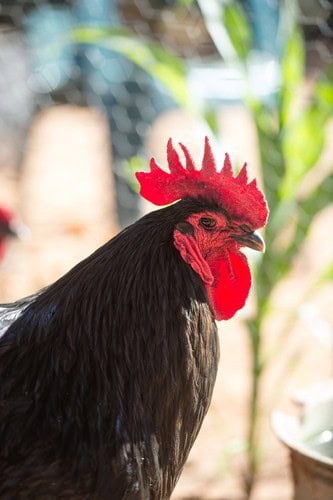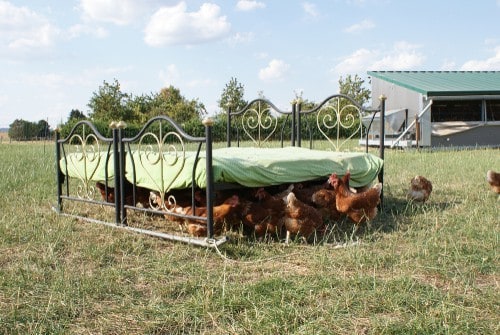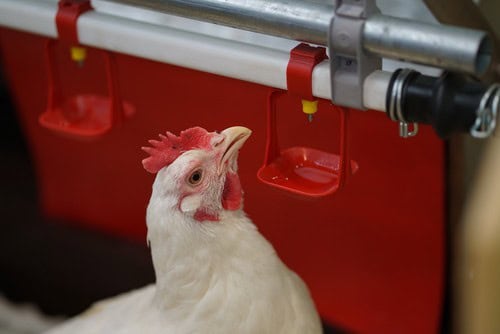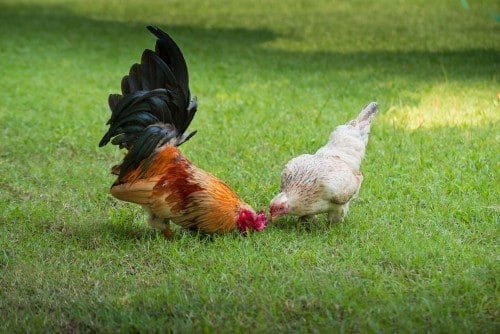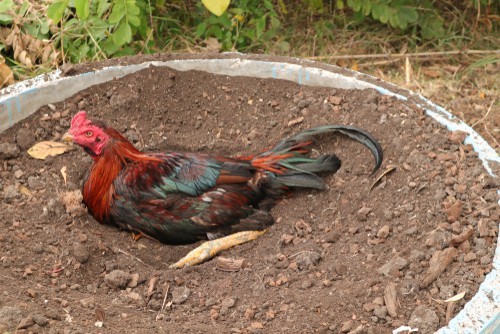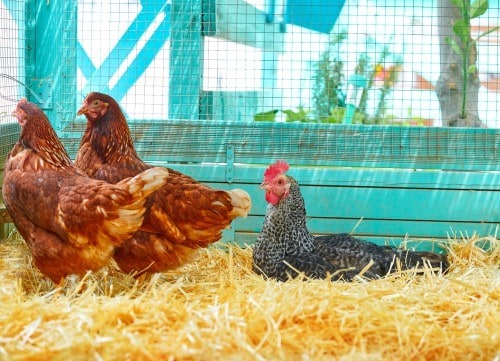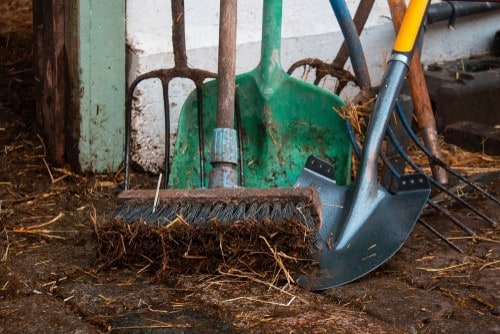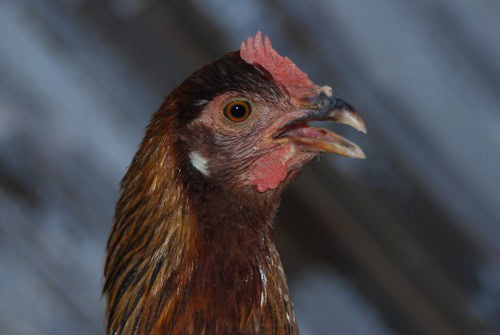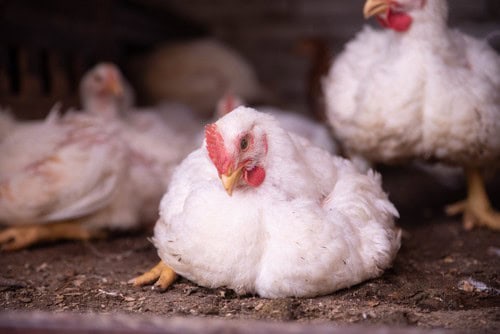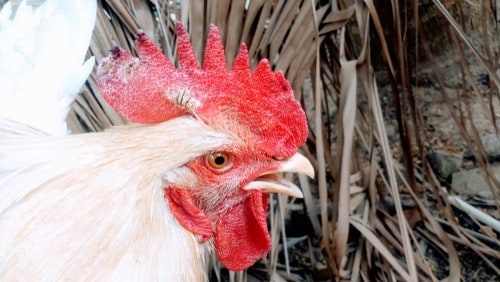I must confess that I’m not exactly thrilled about hot weather. As soon as the thermometer hits 70 degrees, I do my best to stay indoors with a fan or air conditioner humming in the background. However, when you’re an animal caregiver, you often don’t have that luxury – nor do your furry friends! While staying cool may be just a matter of personal comfort for humans, it’s crucial for our four-legged companions’ health and wellbeing.
Prolonged exposure to heat can lead to serious issues like heat exhaustion, lethargy, or in extreme cases, even death. Thankfully, there are some simple tips you can follow to keep your chickens comfortable and healthy during the sweltering summer months.
Choose the Right Breed
When it comes to preparing your chickens for warm and oppressive weather, selecting the right breed is crucial. However, it’s essential to consider your climate and region as well. If you live in an area where hot weather is a rare occurrence, you may not need to prioritize heat-tolerant breeds, as you’ll also need to consider cold-hardy breeds.
On the other hand, if you reside in a region with consistent hot temperatures throughout the year, these breeds are some of the best options: New Hampshire Red, Leghorn, Brahma, Sumatra, Minorca, Easter Egger, Plymouth Rock, Orpington, Lakenvelders, Rhode Island Red, Fayoumi, Welsummer, and Appenzeller Campine. Additionally, consider Sicilian Buttercups, White Crested Black Polishes, Turkens, and Anconas for their heat tolerance.
Some breeds, such as New Hampshire and Rhode Island Reds, are both cold-tolerant and heat-tolerant, while others, like the Penedesenca, struggle in cold weather. When it comes to hot weather, smaller, lightly feathered birds that tend to be flightier by nature are generally better suited. Heavy meat breeds may have a harder time coping with heat. Fast-growing broiler birds can thrive during summer heat, but extra attention is needed regarding water, shade, and food.
Ultimately, a bird’s heat tolerance often depends on its individual disposition rather than breed. Some birds naturally adapt to hot weather, while others prefer cooler temperatures. When selecting breeds for hot climates, be cautious with Australorps, Jersey Giants, Cornish Crosses, and Wyandottes, as they are reportedly less hardy in the heat.
Provide Shade
When it comes to keeping your backyard flock cool during the scorching summer months, providing adequate shade is crucial. One simple yet effective solution is to hang tarps or makeshift canopies to create artificial shading. Alternatively, consider designing your chicken coop with elevation in mind, allowing your birds to seek refuge beneath its shaded perimeter.
Fresh, Clean Water
When it comes to keeping your chickens cool and healthy, access to clean water is crucial. This is especially true during extreme weather conditions like scorching summers and freezing winters. In these situations, providing adequate hydration is vital for regulating their body temperature. Ensure a constant supply of fresh water by placing multiple sources throughout the coop and run.
Consider installing one under some shade as well, as this can help keep the water cool and appealing to your flock. Additionally, it’s essential to position waterers in areas where your chickens can easily locate them, as they may forget to drink if their thirst isn’t quenched. Providing ample hydration opportunities will not only keep your birds happy and healthy but also encourage them to thrive.
Frozen Treats
Imagine the delight of enjoying a refreshing treat on a sweltering summer day, just as much as your feathered friends do! To keep your chickens cool and satisfied during hot afternoons, simply prepare a bag of frozen vegetables and fruits. Not only will this provide them with essential nutrition, but it will also help prevent overheating. Simply fill the bag with goodies like apple peels or cucumber rinds, toss it in the fridge, and serve to your flock on any warm day.
Don’t Limit Them to the Coop
Summer’s arrival brings with it a wave of heat, making it essential to rethink your approach to coop training for your birds. While setting up large box fans might seem like a solution, it’s crucial to consider the potential fire hazard they pose. Instead, avoid confining your chickens inside their coop all day. Not only will this prevent an unpleasantly stinky and dirty environment from developing quickly, but it’ll also be challenging for them to regulate their body temperature effectively.
As stagnant air tends to accumulate within the building, it’s vital to prioritize your birds’ comfort and well-being by allowing them some freedom during the warmer months.
Give Them a Bath
When the heat becomes unbearable, it’s time to get creative with keeping your flock cool. One simple yet effective solution is to set up a kiddie pool for your chickens to stand in when they’re feeling the heat. This not only provides a refreshing way to lower their body temperature but also doubles as a convenient spot for them to relax and unwind. For an added layer of cooling comfort, consider installing sprinklers or misters in the chicken run.
Not only will this keep your birds at a comfortable temperature, but it’ll also help irrigate any grass or plants you have growing there, providing a lush and thriving environment. And let’s not forget about dust bathing – another vital way for chickens to regulate their body heat. By tossing cooler soil onto their feathers, they’re able to effectively cool down and maintain a healthy temperature.
Good Ventilation and Air Flow are Key
When it comes to raising chickens, proper ventilation and air flow in the coop is crucial. In hot weather, it’s essential to ensure your chicken coop remains airy and well-ventilated to prevent overheating. This is particularly important if you need to keep your flock locked up for an extended period. Even if not, providing ample airflow and ventilation is vital to keep your chickens healthy and happy.
To achieve this, make sure all doors, windows, and vents are open and clear of debris, allowing stale air to escape and fresh air to circulate. If you decide to use a fan in the coop, opt for one specifically designed for agricultural use to avoid overheating or fire risks from the buildup of chicken dust.
Keep it Clean
When it comes to keeping your coop clean, hot weather isn’t the only time it’s crucial. As temperatures soar, a dirty coop can become a haven for parasites and diseases that can pose serious threats to your flock’s health. To combat this issue, be sure to apply fresh bedding more frequently if you’re using the deep litter method, or maintain a regular cleaning schedule. Not only will this help keep your coop tidy, but it’ll also eliminate unpleasant odors as the mercury rises.
Some proponents of the deep litter method suggest that it can generate additional heat, so consider alternative options or provide your chickens with ample space to roam and exercise.
Don’t Worry About Panting or Other “Cooling” Behaviors
Chickens may pant and fan their feathers in hot weather, but it’s not necessarily cause for alarm. Unlike humans and pigs, they don’t have sweat glands, so they must rely on other methods to regulate their body temperature. Fanning out their feathers and taking slow breaths are two common ways chickens release heat. As long as this is just a normal response to the weather, there’s no need to worry.
However, if you notice excessive panting accompanied by signs of distress such as refusal to eat or move, it may be necessary to take immediate action to cool them down.
Avoid High Fat Foods
When it comes to feeding your chickens during warm weather, it’s essential to exercise caution. While high-fat foods like corn and sunflower seeds are ideal for cold weather when your birds can use the extra energy to digest them, they’re best avoided during hot weather. This is because these foods require more energy from your chickens’ bodies to process, which can actually increase their body temperature further in the heat.
Instead, consider providing them with a balanced diet that’s tailored to their specific needs and the conditions you’re experiencing.
Watch for Signs of Heat Distress
To ensure the well-being of your backyard flock, it’s crucial to recognize the signs of heat distress in chickens. As with all animals, prompt action is necessary when a chicken falls ill.
While symptoms may vary among birds, common indicators of heat stress include excessive panting or labored breathing, pale or discolored combs and wattles, seizures and convulsions, diarrhea, loss of appetite, a sharp decline in egg production, thinning eggshells, staggering or ‘drunken’ gait, and feathers erect. If you notice any of these signs, provide immediate medical attention to your birds, as failing to act can be fatal.
By exercising good animal husbandry and common sense, you can keep your chickens cool and healthy during the hot summer months, ultimately ensuring their long-term health and happiness.
